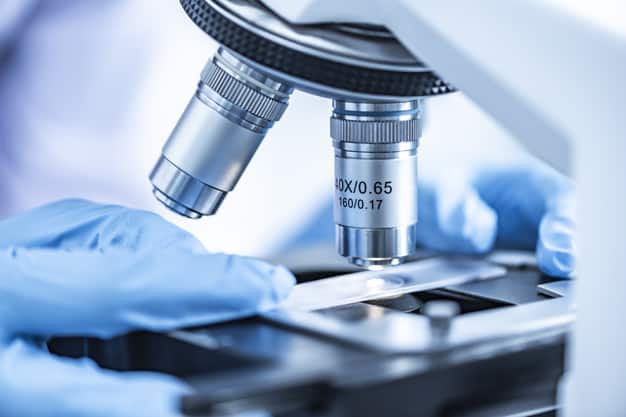
The laboratory sector in India is huge as compared to other European and American. There are approx. 900 calibration laboratories, 6100 Testing Laboratories and 1950 Diagnostic accredited laboratories in India. Over 50000 laboratories are running without accreditation. The laboratory community has provided for a huge employment to the citizens of India.
Association of Indian Laboratories was registered in December 2014 under Society Act Rule 2012, officially launched on 19.04.2015, which was announced as “Laboratory Day” for laboratory Professionals. AOIL is the only association in India for laboratory welfare and a platform for common issues faced by the laboratory community. It has represented the Indian laboratory sector both nationally and internationally since 2015. It has been recognized by ILAC as a stakeholder and given a large number of presentations in each committee.
“With the Second wave more dangerous than the first, Medical testing laboratories in the country have been giving their best to save the life of a human being with additional business approx. 200 percent. Testing laboratories involved in infrastructure and other projects have seen a lesser business volume in the financial year 21 than 1999-2000,” said Rajesh Deswal, President of AOIL.
He added that during the first wave the revenues were down by 20 percent as the labs went back to normality after the Covid waves subsided. The current financial year has started with a lot of uncertainties and the conditions are worse than last year due to the second wave. Rajesh and a few experts from AOIL were among those who shared inputs with the government on the first wave. He further added that the fall in business would be credited to the lab being closed during the pandemic.
“The Laboratories are the backbone for providing the quality infrastructures as third-party testing/ Inspections by providing the fair results in the country. Govt. should recognize the Laboratory sector as a Special sector. They are the pillars during innovation of any product or medicine or instrument. It is a chain system with only the Medical labs being open during the pandemic could cause issues,” said Rajesh.
Laboratories are divided into a) Medical laboratories b) Testing laboratories c) Calibration laboratories d) GLP Laboratories. 95 to 97 percent of the lab is open to the public than for in-house uses. He added that closing of even calibration labs would be disadvantageous to the industry as if a thermometer is not calibrated or BP not calibrated would be an issue. PATH labs and RT-PCR labs that come under Medical Laboratories are the only ones open. Currently, the Medical laboratories are financially doing well while others have gone into panic mode, added Rajesh.
Apart from this, the Laboratory industry in India relies heavily on imported instruments and reference materials. The laboratory assets are costly and need an appropriate environment and temperature to be maintained and stored as they are imported and are made for that environment’s needs.
Laboratory’s principal assets are Equipment and Reference Materials. As Most of the High technology instruments and reference materials being imported are very costly, there is a custom duty of 28% along with high freight charges as additional Investment for Indian laboratories. Indian manufacturers could not compete with European and American suppliers.
“The government should help the laboratory community to buy the technology Initiatives for development of high precise equipment’s as well as Reference materials as it would help to cut off the charges in India, as well as India can compete the business in abroad also,” said Rajesh
He added subsidies during purchase of equipment should be 50% with no upper condition of value in a year, as equipment’s cost is very high. GST at 5% would support the growth for providing the quality infrastructures in the country. Accreditation as per ISO/IEC 17025 or 1519 should be the criteria for selection of laboratory; there should be no further empanelment requirements with various departments/PSU/ Govt. Sector. As additional empanelment is the harassment for the laboratories, added the President of AOIL.
“Accepting our request for the laboratory community, could ensure the above support the laboratory community will give a good deal of employment and convert the GDP twice at present. If such a pandemic reoccurs, the government should select accredited laboratories for future and provide the additional support to them with facilities whereas required to save human life,” said Rajesh.
Association of Indian Laboratories is a pool of experts in all disciplines and shows their presence as members in any technical board/ committee at Pan-India level, being a national level association. Association of Indian Laboratories has also been seeking the support to consider under the 80G exemption scheme from Income tax as registered as an NGO under Society act.
“This is the time to learn and do innovations, as laboratories have multiple facilities or can join hands to others for developing the requirements from this pandemic. These innovations will help to establish Atma Nirbhar Bharat,” said Rajesh on Indian Laboratory sector growth.
The CSIR-NPL, the measurement standards laboratory of India, has been constantly working to support the manufacturing in India, said Rajesh. Association of Indian Laboratories has played a major role in adding the service sector in MSME schemes and benefits from the Ministry of MSME.
Bharatiya Nirdesha Dravyar (BNDs) program, original mandate of CSIR on maintenance of national physical standards and certified reference materials, by the NPL under the leadership of Dr. D K Aswal, former Director of CSIR-NPL. It has currently produced more than 70 BNDs as of 2020. This is expected to reduce the dependence of CRM’s imported, the cost and the quality of products made in India.
There is a huge opportunity and scope in India in the production of Indian products. This BND is a start to the Indian success. This will strengthen Indian products in the international market and the economy,” added Rajesh.













